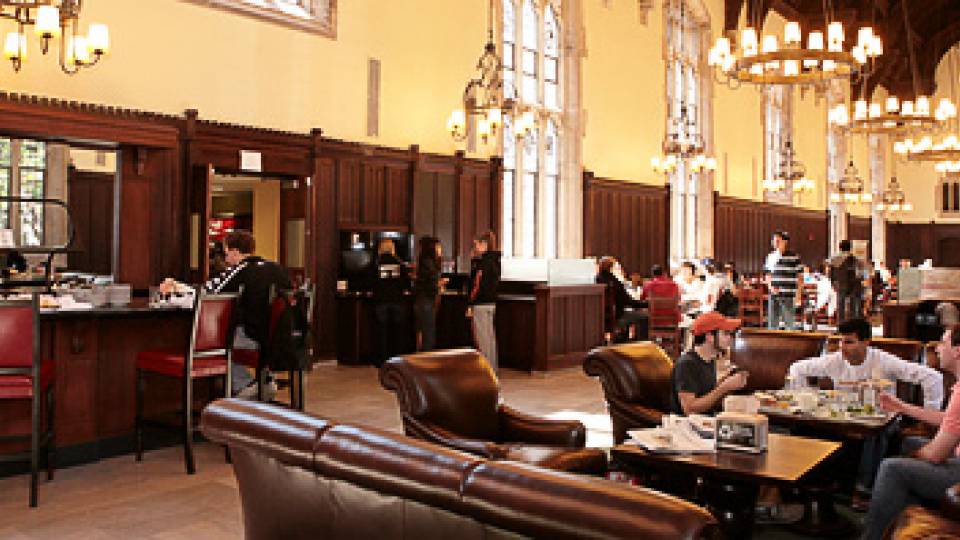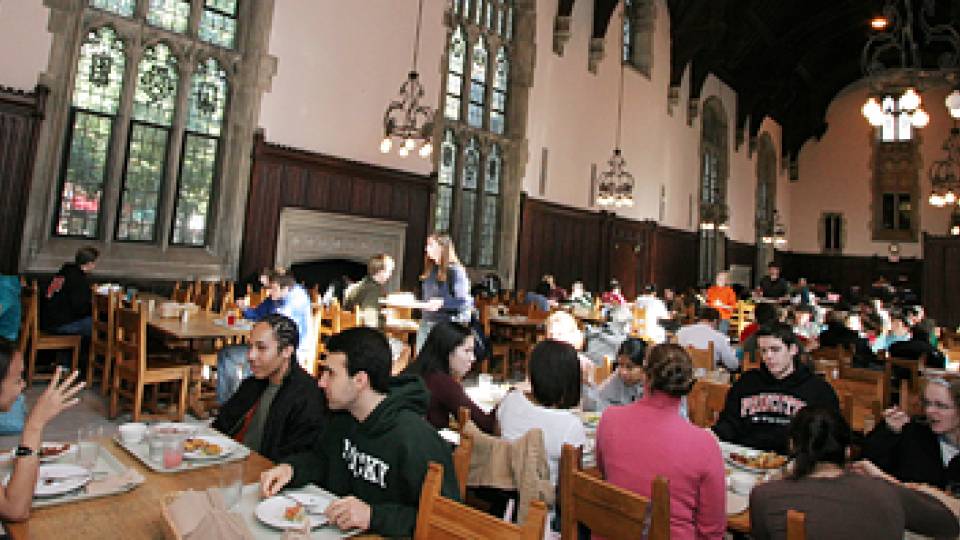A report recommending changes that Princeton should consider as it implements a plan to strengthen and expand the University's residential college system was presented to the Board of Trustees Sept. 20.
The Report of the 21-member Four-Year College Program Planning Committee proposes modifications in advising/staffing, programming, housing and dining to convert the University's current system of five two-year colleges into a system of paired two- and four-year colleges that will, in the words of the report, "create more interaction for first- and second-year students with upperclass students, graduate students and faculty."
As previously announced, Princeton plans to construct one new college and to reconfigure two others to implement a system of three four-year residential colleges and three two-year residential colleges. It is expected that the first year of operation of the first two four-year colleges, Whitman and Mathey, will be the 2006-07 academic year.
Specifically, the committee proposes that all juniors and seniors remain affiliated with a residential college, either the one they entered as a freshman or one to which they move after sophomore year. This association would be promoted by a continuing relationship with college deans and directors of studies, a limited number of meals, participation in programs and access to facilities. The committee also calls for enhanced academic advising for all students in the colleges; the creation of a position, perhaps called "director of residential life" in each of the six colleges; the residence of 10 graduate students in each college to provide academic, cultural and residential programming; the location of more teaching in the colleges; and improvements in facilities and the quality of food. The report now will be reviewed and discussed by a wide range of University deliberative and consultative bodies.
"I believe that we are embarked together on a process that will add greatly to the experience of all Princeton students -- most immediately, of course, for those who elect to reside in residential colleges during their junior and senior years, but also, as your report makes clear, for all undergraduates and for a significant number of graduate students," wrote President Shirley M. Tilghman in a letter accepting the committee's report. "We are building on the strong base of residential life that has historically characterized Princeton to achieve even more effectively our goal of providing the broadest and most rewarding educational experience for students both in and out of the classroom."
The committee's key recommendations are outlined in a news release and appear in full in the text of the report .
Contact: Marilyn Marks (609) 258-3601


